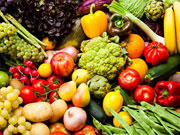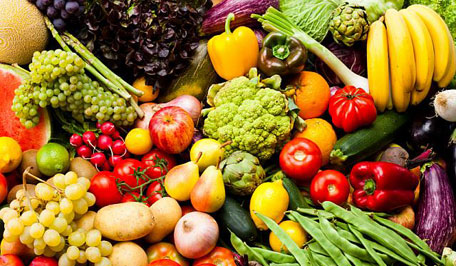Food safety: Important issue in China

 0 Comment(s)
0 Comment(s) Print
Print E-mail CNTV, January 4, 2013
E-mail CNTV, January 4, 2013
Despite China's rich food culture, recent food safety scandals have overshadowed the enjoyment of eating, by putting people's health at risk.
 |
|
Food safety: Important issue in China. |
Box it up for the festive spirit, it's been said that when Chinese sit down to eat, one topic is sure to be their next meal. But in recent years, the simple joy of eating has been dampened by a string of food safety scandals. Scandals over recycled waste cooking oil, pesticides, and pork disguised as beef have made headlines.
"Food safety is very important to me. Ever since the KFC incident broke out, I barely eat outside."
"I think the government should enact tougher laws and regulations..."
"Besides tougher government regulations and transparency, I think the public -- especially new media platforms such as Weibo -- should continue to expose food safety scandals."
The latest scandal -- Chickens allegedly raised on large quantities of hormones and other drugs being supplied to fast-food restaurants. The case has prompted a growing number of Chinese consumers to question the safety of food production.
China produces around 400,000 tons of antibiotics each year, half of which are used in the breeding of livestock. It's reported that the use of antibiotics brings down the costs of rearing live animals, as it reduces the amount of feed needed.
The average cost of raising a chicken is around 15 yuan and the cost of antibiotics, which is included in the cost, amounts on average to around one or two yuan. Studies show that only 1 kilo of feed is needed to raise a chicken if antibiotics are used, while the normal amount of feed is usually around 1.1 kilos.
Xu Guiyun, Dep. Director, Poultry Quality Testing Center, said, "Because of increasing labor and land costs, the meat and grocery industry has been switching from individual small producers to large scale production. As the food providers get bigger, the market will get more organized, and government standards will get stricter."
Both experts and the public are calling for tougher regulations. It's been a hot issue during the political season, generating many motions and proposals.
National People's Congress deputy Yan Junbo wants a special government committee to address the issue and follow through with the necessary legislation.
"This Special committee doesn't have to include many people but it should be efficient. We should address the food safety problem from top to bottom--to improve the legal system, and from bottom to top--to ensure the food source is of high quality."
According to official figures, authorities handled 15,000 food safety cases and shut down 5,700 unlicensed businesses during inspections conducted across the country in the first half of 2012.
The State Council issued a statement in July stating that it would make efforts to establish a better regulation mechanism, an improved legal and standard system and technical support for food safety over the next five years.
"Eating is so important to Chinese that we have the term 'food culture'. But recent scandals have the public worried about what's on their tables. China's legislative body and the government need to work together to ensure that people worry only about how something tastes, and not about whether it's safe.






Go to Forum >>0 Comment(s)